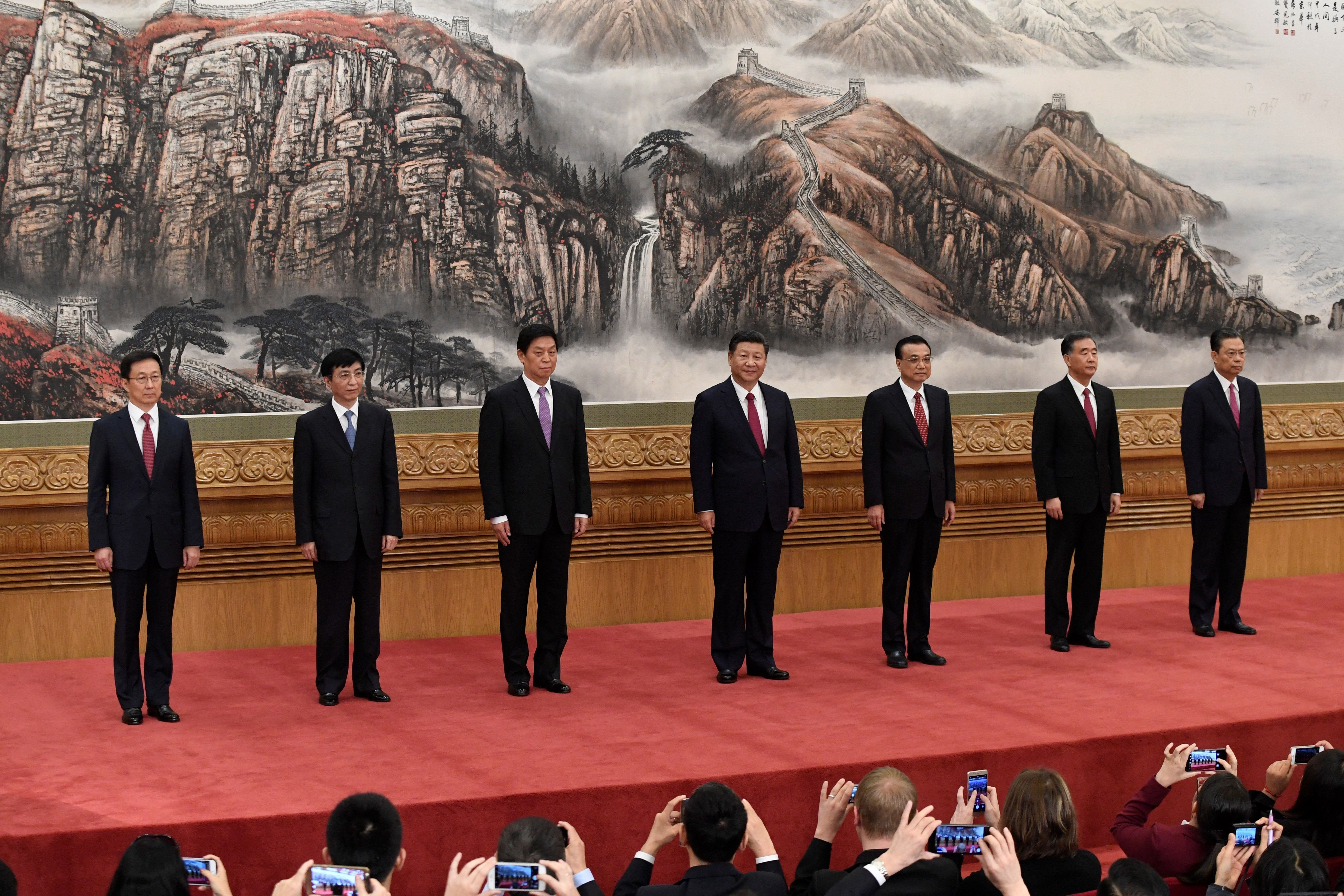The biggest event in the Chinese political calendar that only takes place twice in a decade -- The Party Congress of The Chinese Communist Party -- concluded on Tuesday, Oct. 24.
President Xi Jinping emerges more powerful
Chinese President Xi Jinping who is also the party chief, has emerged as the most powerful leader in China since Mao Zedong at the start of his second term in office.
This was after the party unanimously voted to enshrine the ideology bearing his name -- the “Xi Jinping Thought on Socialism with Chinese Characteristics for a New Era” into the party constitution.
He becomes the only second Chinese Communist ruler after Mao Zedong, the party’s revolutionary leader, to be honoured with an eponymous reference in the constitution while still in power.
Another revered Chinese leader's ideology, the "Deng Xiaoping Theory" on socialism with Chinese characteristics, was formally entered into the party constitution only after Deng’s death in 1997.
New line-up
The full line-up of its highest decision-making body, The Politiburo Standing Committee (PSC), was unveiled on Wednesday (Oct. 25) at 11.45am after the party’s new Central Committee held its first plenum meeting and endorsed the line-up.
Wang Qishan, Xi's key ally and a former member of the PSC, was excluded from the new list of the Party's Central Committee members announced on Tuesday.
As PSC members are chosen from the Politburo, and its members must be on the list, this news confirmed his retirement from the top body.
Five new top leaders
At the event watched by millions globally and in China, the members of the PSC, old and new, in order of seniority, filed onto the stage inside Beijing’s Great Hall of the People, ending months of speculation about who's in and who's out.
Besides Xi, Premier Li Keqiang retained his number two position on the PSC.
The five new faces in the country's top decision-making body are: Li Zhanshu, Wang Yang, Wang Huning, Zhao Leji and Han Zheng.
No presumptive successor to Xi was named.
A highlight of this reshuffle, it is a move that signaled the end of the designated successor system introduced by paramount leader Deng Xiaoping, which gives several possible candidates time to prove themselves over the next five years.
Meanwhile, here's all you need to know about the latest members that just joined China’s highest echelons of power and some of their connections to Singapore:
1. Li Zhanshu, former chief of staff to Xi Jinping
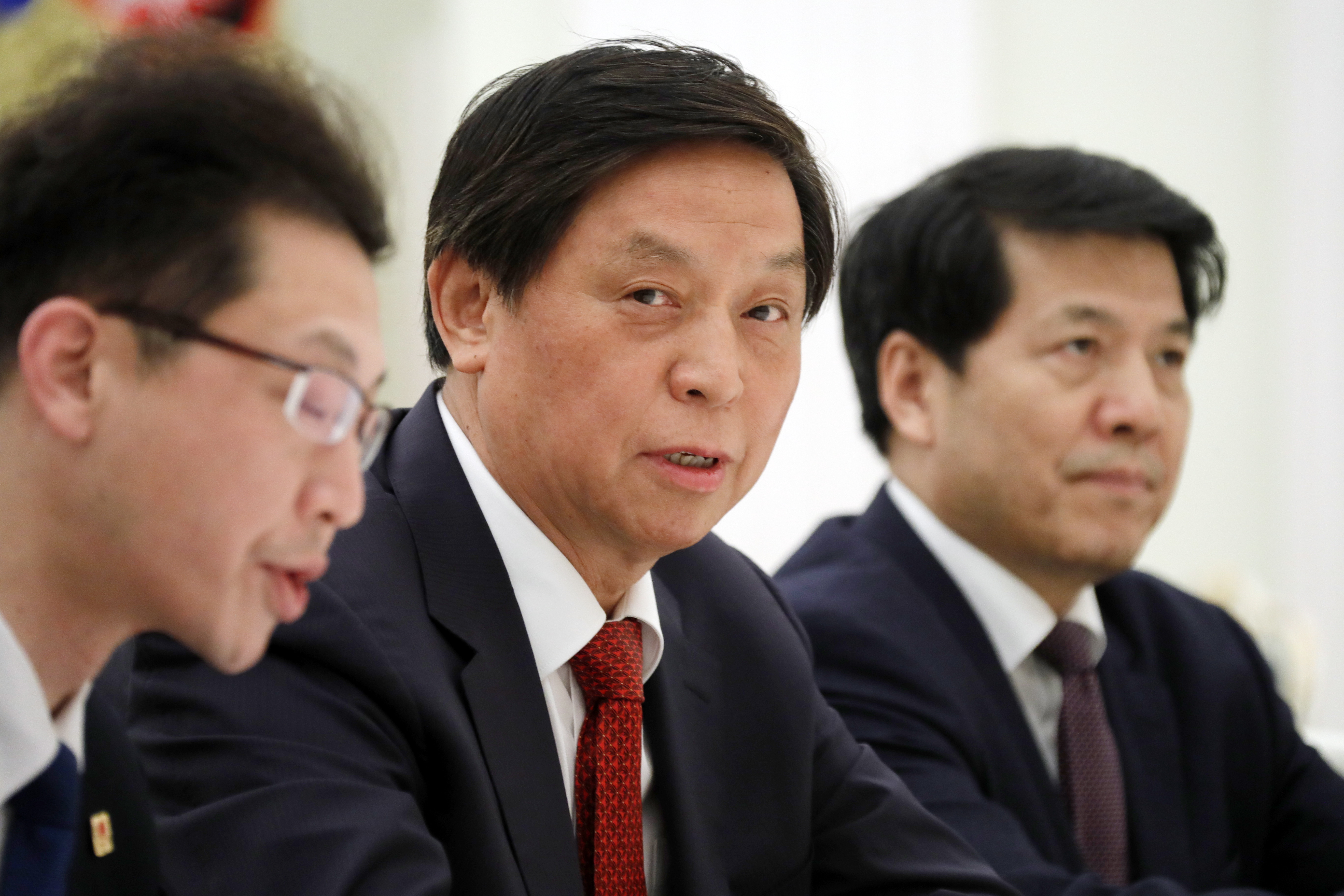 MOSCOW, RUSSIA - APRIL 26, 2017: Li Zhanshu (C), director of the General Office of the Communist Party of China at Moscow's Kremlin. (Photo by Mikhail Metzel TASS via Getty Images)
MOSCOW, RUSSIA - APRIL 26, 2017: Li Zhanshu (C), director of the General Office of the Communist Party of China at Moscow's Kremlin. (Photo by Mikhail Metzel TASS via Getty Images)
Age: 67
Likely new appointment: National People’s Congress (NPC) Chairman.
Background: As the Director of the General Office of the Communist Party of China, he performed a role that resembled that of a chief of staff.
A friend of Xi since the early 1980s, he has been arguably the most powerful chief of staff in decades and was trusted with solo diplomatic visits to pave the way for Xi visits, as in the case of Russia this year and 2015.
Having a trusted subordinate at the helm of the NPC means Xi will be in a strong position to make legislative changes in the next five years, in particular on tightening supervision of party members and anti-corruption work.
2. Wang Yang, former Vice-Premier
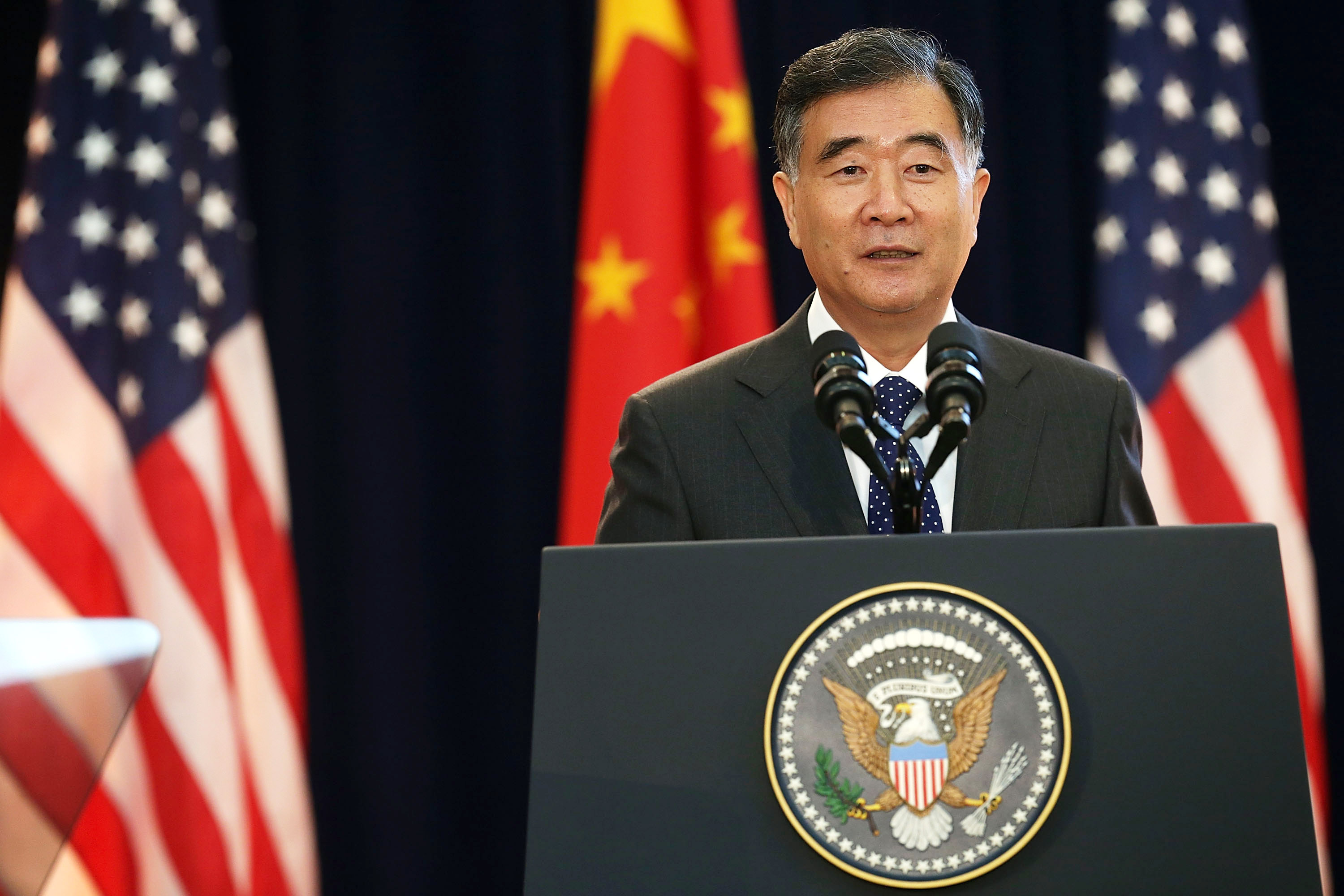 Chinese Vice Premier Wang Yang in June 23, 2015 at the State Department in Washington, DC. (Photo by Alex Wong/Getty Images)
Chinese Vice Premier Wang Yang in June 23, 2015 at the State Department in Washington, DC. (Photo by Alex Wong/Getty Images)
Age: 62
Likely new appointment: Chairman of The Chinese People’s Political Consultative Conference (CPPCC), the top political advisory body.
Background: Wang Yang is a seasoned politician with a wealth of regional experience, including stints as Party Secretary of Chongqing (2005–07) and then Guangdong (2007–12).
As the third ranking Vice-Premier in the State Council in charge of agriculture and foreign trade, he leads China’s finance and trade talks with the United States and spearheads the country’s poverty alleviation drive, one of Xi’s top priorities.
Changes at the state level, such as who will head the NPC or the CPPCC, will only be announced early next year.
The Singapore connection: As Guangdong party chief, he launched the Singapore-Guangdong Collaboration Council with Senior Minister Goh Chok Tong in March 2009, and also officiated the ground-breaking for the Sino-Singapore Guangzhou Knowledge City in July 2010, also with Goh.
He is familiar with Singapore and had visited Singapore five years ago.
3. Wang Huning, former top policy advisor and party theoretician
 Wang Huning, a member of the Political Bureau of the CPC Central Committee, on October 18, 2017. (Photo credit WANG ZHAO/AFP/Getty Images)
Wang Huning, a member of the Political Bureau of the CPC Central Committee, on October 18, 2017. (Photo credit WANG ZHAO/AFP/Getty Images)
Age: 62
Likely new appointment: Top party official in charge of ideology and propaganda.
Background: A former academic before entering politics, Wang has advised three Chinese Presidents from Jiang Zemin to Hu Jintao and now Xi. He is following a path similar to Wen Jiabao, who was named on the committee in 2002 despite having no experience of managing any province.
He is likely to oversee the crafting of new theories to support for Xi's reform programmes, which is different from Western ideas.
[related_story]
4. Zhao Leji, former chief of Central Organisation Department
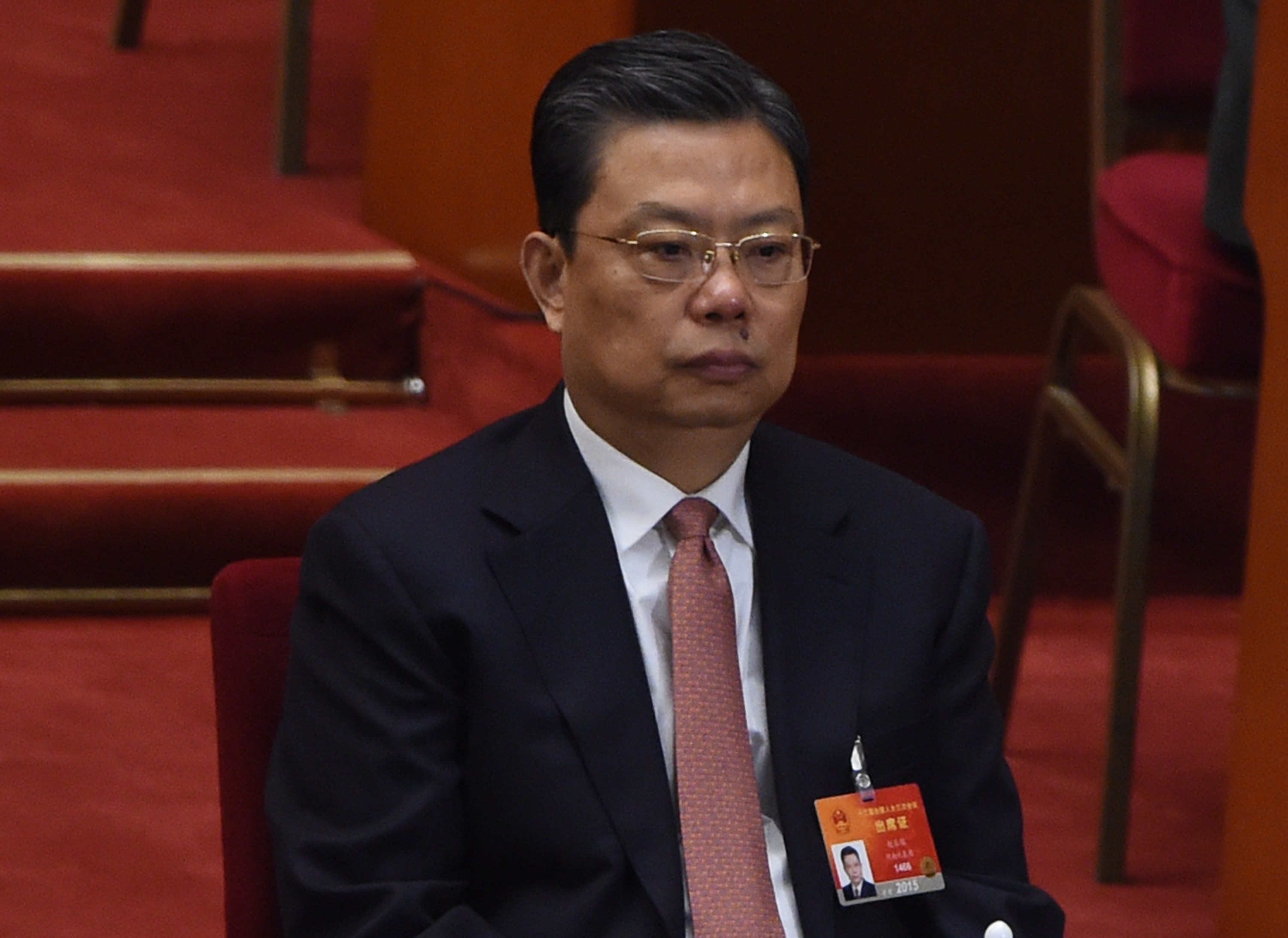 Zhao Leji in March 15, 2015. (WANG ZHAO/AFP/Getty Images)
Zhao Leji in March 15, 2015. (WANG ZHAO/AFP/Getty Images)
Age: 60
New appointment: Head of The Central Commission for Discipline Inspection (CCDI), the anti-corruption watchdog
Background: In the last five years, Zhao has been in charge of the party’s powerful Organisation Department, responsible for managing the careers of millions of party officials.
Given Zhao’s relatively young age of 60, he could end up serving two terms on the Politburo Standing Committee and has a good chance of being named head of the new national supervisory commission that is expected to be established early next year.
The Singapore connection: Zhao was a potential high-flyer Singapore had been engaging over the years.
He is the co-chair of the high-level Singapore-China Leadership Forum since 2013 with Deputy Prime Minister Teo Chee Hean, and is familiar with Singapore and its leaders.
While in Singapore, Zhao also called on Prime Minister Lee Hsien Loong and was hosted to lunch by Emeritus Senior Minister and Chairman of the Lee Kuan Yew School of Public Policy (LKYSPP) Goh Chok Tong.
Besides co-chairing the Forum in Singapore with Zhao in May this year, DPM Teo also met Zhao in February when he visited Beijing to attend the JCBC meeting where Zhao described Teo as an "old friend".
5. Han Zheng, former Shanghai Party Secretary
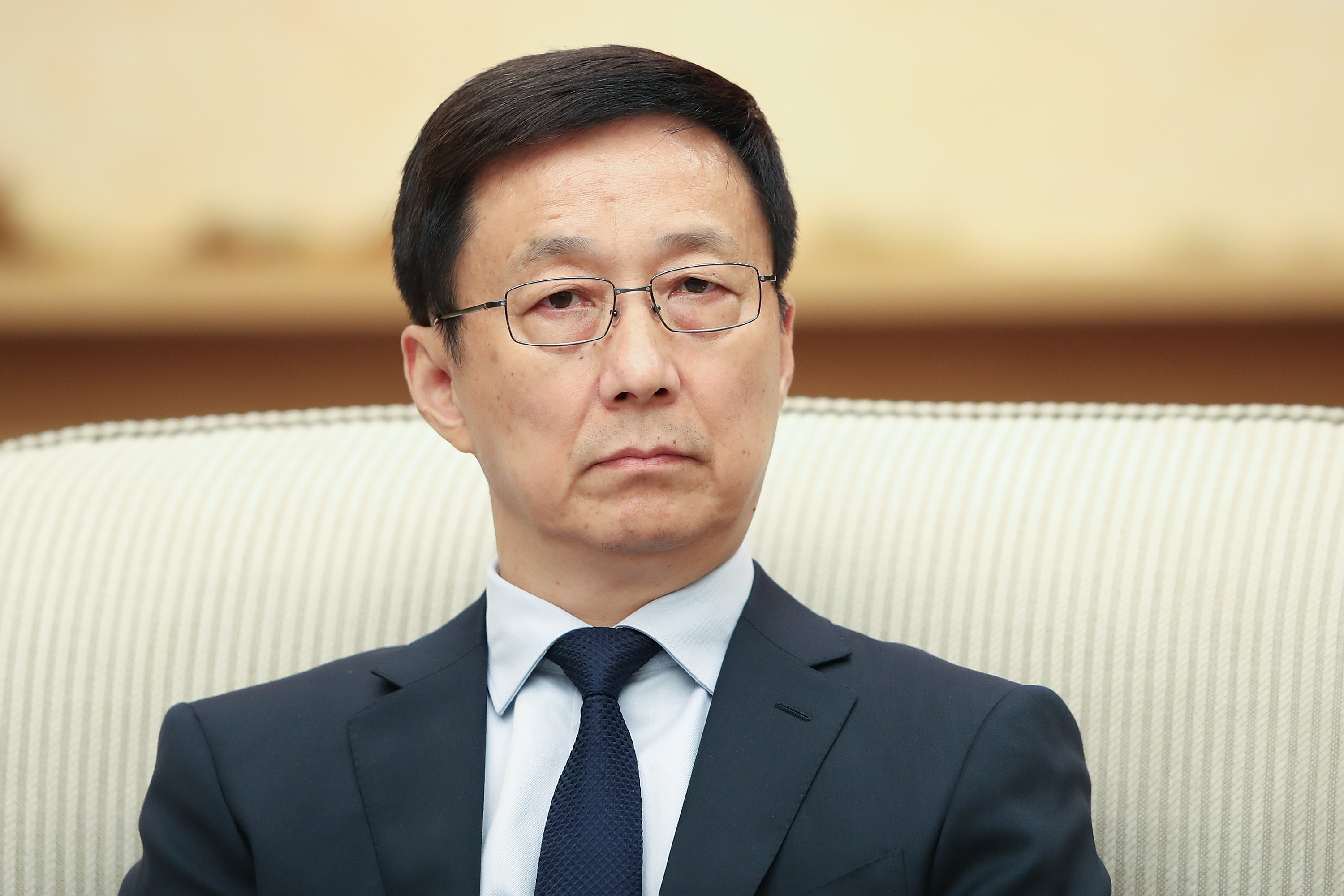 Han Zheng, Chinese Communist Party secretary of Shanghai in October 19, 2017 in Beijing, China. (Photo by Lintao Zhang/Getty Images)
Han Zheng, Chinese Communist Party secretary of Shanghai in October 19, 2017 in Beijing, China. (Photo by Lintao Zhang/Getty Images)
Age: 63
Likely new appointment: Executive Vice-Premier
Background: Han is a seasoned politician. He is often linked to former president Jiang Zemin as part of the Shanghai faction. Traditionally, the party boss of Shanghai has always taken a seat at the PSC during a leadership reshuffle.
The Singapore connection: Before his appointment as Shanghai party chief, Han was also the long serving mayor of China's leading financial centre and metropolis between 2003 and 2012.
Over the years, Singapore and Shanghai has deepened its cooperation. The Singapore-Shanghai Financial Forum, an annual event jointly organised by the Monetary Authority of Singapore (MAS) and Shanghai Municipal Financial Services Office was launched in 2015 to promote and strengthen cross-border collaboration between the two financial centres.
If he is confirmed as the Executive Vice-Premier, it is likely that he will take over from Zhang Gaoli as the co-chair of The Joint Council for Bilateral Cooperation (JCBC), the top bilateral engagement platform between Singapore and China.
Top photo from Getty Images
If you like what you read, follow us on Facebook, Instagram, Twitter and Telegram to get the latest updates.
